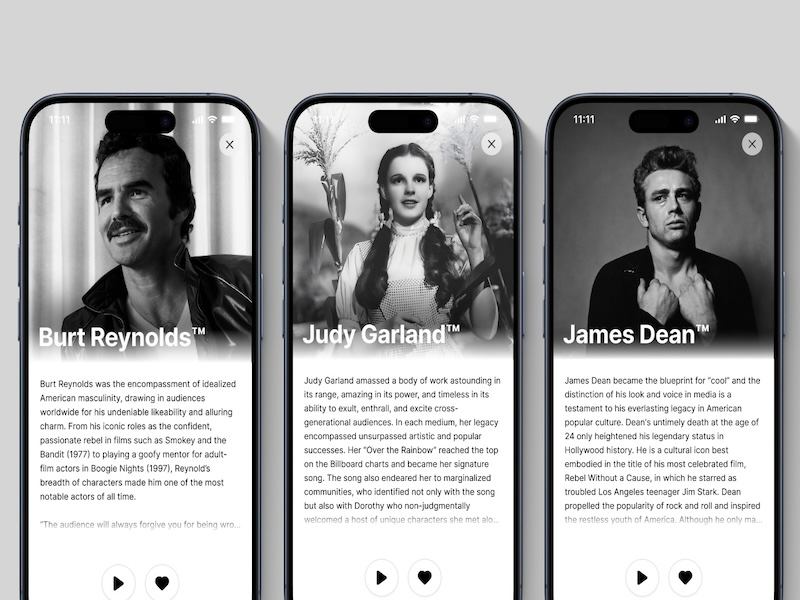- ElevenLabs launches Reader app featuring digitally produced voice-overs of deceased celebrities like Judy Garland, James Dean, and Burt Reynolds.
- The app converts various text formats into voice-overs, marking a significant step in AI’s role in media and entertainment.
OUR TAKE
ElevenLabs’ introduction of AI-generated voice-overs from deceased celebrities represents a major advancement in technology and media. By incorporating voices like Judy Garland’s into their new Reader app, ElevenLabs is setting a new precedent in how we can experience classic voices. This development, while showcasing AI’s potential, also raises important questions about copyright, authenticity, and the ethics of using digital recreations of voices from the past.
— Zoey Zhu, BTW reporter
What happened
AI company ElevenLabs has launched a new Reader app that will feature voice-overs from iconic deceased actors like Judy Garland, James Dean, and Burt Reynolds. This app converts text from articles, PDFs, and e-books into audio, allowing users to hear these celebrities narrate content they never recorded.
Dustin Blank, ElevenLabs’ head of partnerships, assured that the company respects the actors’ legacies and sees this as a major step in diversifying content accessibility. While agreements with the actors’ estates are in place, details on compensation remain undisclosed.
This advancement highlights AI’s growing ability to produce lifelike voice reproductions, though it also raises ethical and legal concerns about the technology’s use. Earlier this year, ElevenLabs faced controversy when its tool was used to create a fake robocall from President Joe Biden, illustrating the potential for AI misuse.
Also read: OpenAI voice-clone tool mimics your voice with 15-second sample
Also read: Voice recognition: Important part of AI
Why it’s important
ElevenLabs’ new AI-generated voice-overs featuring deceased celebrities highlight the advancing capabilities of AI and its influence on media and entertainment. This technology offers innovative content creation opportunities but also raises issues around copyright and authenticity.
David Gunkel, an AI and media professor, notes that while a person’s voice itself isn’t copyrightable, recorded instances are protected. AI models using such recordings must navigate these legalities, with estates potentially negotiating licenses similarly to copyright deals for music.
The reaction to AI voices will be mixed; some may embrace it as a novel content experience, while others may express concerns about ethics and potential misrepresentation. This development mirrors other AI innovations, such as NBC’s AI-generated commentary for the Olympics. The long-term effects on market dynamics and consumer perceptions could significantly reshape voiceover and endorsement industries.

